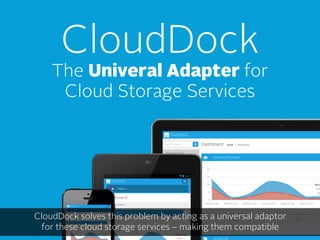Checking Out the Function of Universal Cloud Storage Solutions in Information Defense and Compliance
As organizations increasingly count on cloud storage remedies to handle and protect their information, checking out the detailed role these services play in guaranteeing information safety and conference regulatory standards is essential. By delving into the nuances of global cloud storage solutions, a more clear understanding of their effect on data safety and security and regulatory conformity arises, shedding light on the intricacies and opportunities that exist in advance.
Importance of Cloud Storage Space Provider
Cloud storage space solutions play an essential duty in contemporary information management techniques due to their scalability, accessibility, and cost-effectiveness. Scalability is a key advantage of cloud storage space, allowing organizations to easily readjust their storage capability as data needs fluctuate.
Ease of access is one more important aspect of cloud storage space solutions. By storing data in the cloud, customers can access their details from anywhere with a web link, promoting cooperation and remote job. This accessibility advertises operational effectiveness and enables smooth sharing of information across teams and areas.
In addition, lots of cloud storage providers supply pay-as-you-go rates designs, enabling companies to pay only for the storage capability they utilize. Overall, the value of cloud storage solutions lies in their capacity to enhance data management procedures, boost access, and reduced functional costs.
Information Defense Techniques With Cloud
By securing data before it is submitted to the cloud and preserving control over the security keys, organizations can protect against unapproved accessibility and mitigate the risk of information violations. Multi-factor authentication, solid password plans, and regular accessibility testimonials are some methods that can enhance data defense in cloud storage space solutions.
Routinely backing up data is one more essential facet of information security in the cloud. By combining encryption, access controls, backups, and regular safety and security assessments, organizations can develop a robust data protection approach in cloud atmospheres.
Compliance Considerations in Cloud Storage Space
Provided the important nature of data security techniques in cloud settings, organizations have to additionally prioritize compliance factors to consider when it comes to keeping data in the cloud. When utilizing cloud storage solutions, businesses require to ensure that the carrier abides with industry-specific standards such as GDPR, HIPAA, or PCI DSS, depending on the type of data being saved.

Difficulties and Solutions in Cloud Protection
Ensuring robust safety and security actions in cloud environments offers a multifaceted obstacle for companies today. Among the main obstacles in cloud security is data violations. Malicious stars regularly target cloud systems to get unapproved accessibility to delicate information. To mitigate this risk, organizations need to apply solid file encryption methods, accessibility controls, and regular safety and security audits. Another challenge is the shared responsibility model in cloud computing, where both the cloud company and the client are accountable for different facets of security. This can bring about complication and gaps in safety and security insurance coverage if not plainly defined. Organizations has to plainly detail roles and obligations to guarantee thorough protection procedures remain in location.

Future Fads in Cloud Data Security
The progressing landscape of cloud data defense is noted by an expanding focus on positive defense methods and adaptive safety and security actions (universal cloud storage). As technology developments and cyber dangers become a lot more innovative, companies are significantly concentrating on anticipating analytics, expert system, and artificial intelligence to enhance their data security capacities in the cloud
One of the future trends in cloud information defense is the combination of automation and orchestration useful reference tools to improve safety procedures and response procedures. By automating regular jobs such as risk discovery, incident response, and spot administration, organizations can boost their general safety and security stance and better safeguard their data in the cloud.
Furthermore, the adoption of a zero-trust security design is acquiring grip in the realm of cloud information security. This strategy assumes that risks might be both external and interior, requiring continual authentication and consent for all individuals and tools accessing the cloud atmosphere. By applying a zero-trust structure, companies can decrease the risk of data breaches and unapproved accessibility to delicate info kept in the cloud.
Final Thought
